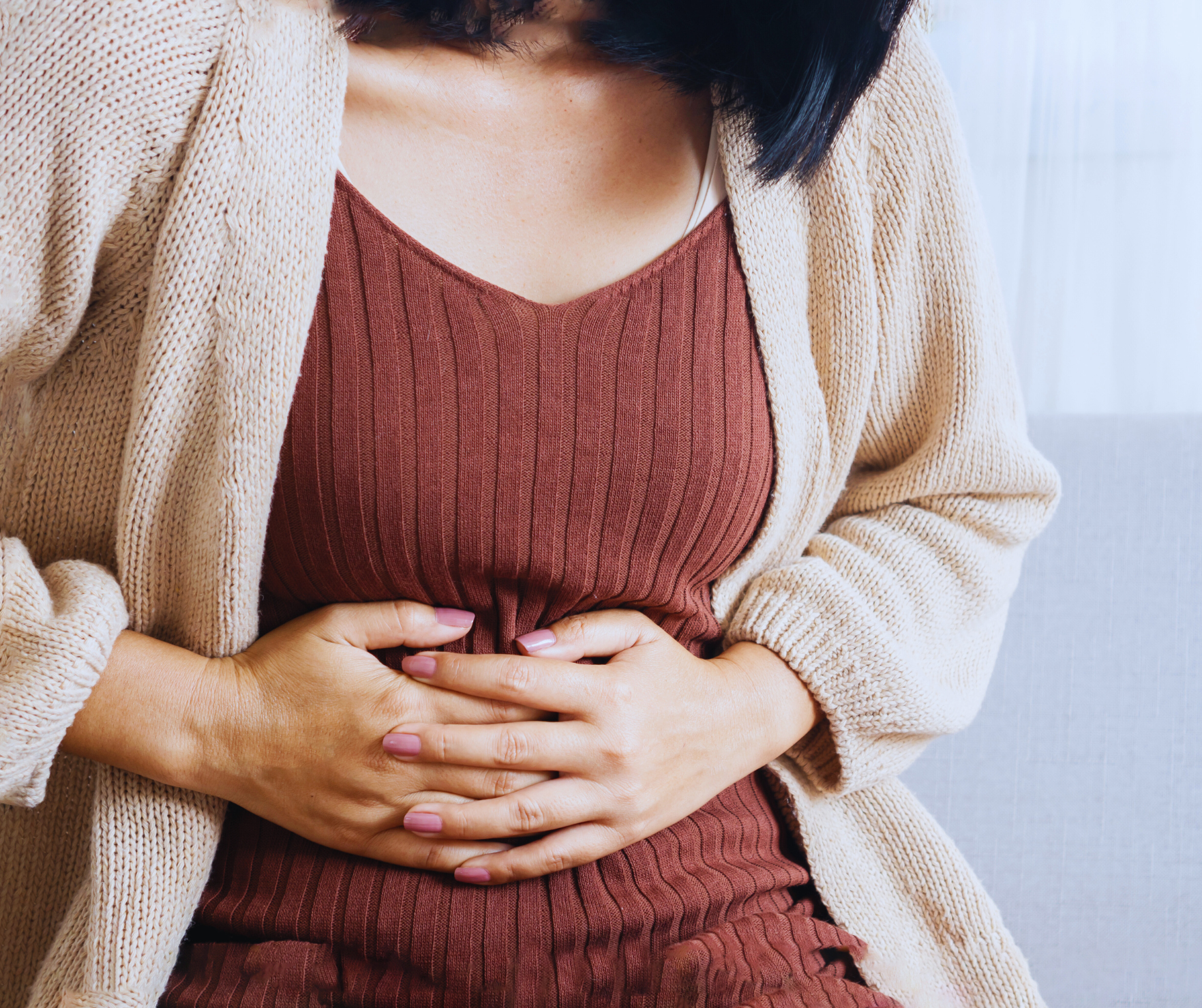Premenstrual Syndrome (PMS)

Understanding Premenstrual Syndrome (PMS): Causes, Symptoms, and Treatments
Introduction
Premenstrual Syndrome (PMS) refers to a group of physical and emotional symptoms that many women experience in the days leading up to their menstrual period. PMS is common, affecting up to 75% of women who menstruate, and can range from mild discomfort to severe symptoms that impact daily life. Understanding PMS and its management is crucial for improving quality of life during the menstrual cycle.
Causes of PMS
- Hormonal Fluctuations:
- Estrogen and Progesterone: The most significant cause of PMS is the fluctuation of estrogen and progesterone levels during the menstrual cycle. These hormonal changes can affect mood, energy levels, and physical well-being.
- Serotonin Levels: Changes in the levels of serotonin, a brain chemical that regulates mood, can lead to emotional symptoms like irritability, depression, and anxiety.
- Chemical Changes in the Brain:
- Neurotransmitter Imbalance: Hormonal fluctuations can affect neurotransmitters like serotonin and dopamine, leading to mood swings, irritability, and other emotional symptoms.
- Nutritional Deficiencies:
- Vitamin and Mineral Deficiencies: A lack of certain nutrients, such as magnesium, calcium, and vitamin B6, may contribute to PMS symptoms.
- Lifestyle Factors:
- Stress: High stress levels can exacerbate PMS symptoms.
- Poor Diet: Diets high in salt, sugar, caffeine, and alcohol can worsen PMS symptoms.
- Lack of Exercise: Physical inactivity can contribute to fatigue, bloating, and mood swings.
- Underlying Health Conditions:
- Thyroid Disorders: An underactive or overactive thyroid can worsen PMS symptoms.
- Mental Health Conditions: Women with depression or anxiety may experience more severe PMS symptoms.
Symptoms of PMS
PMS symptoms typically begin a week or two before menstruation and go away a few days after the period starts. Common symptoms include:
- Physical Symptoms:
- Bloating and Weight Gain: Fluid retention can cause a feeling of fullness and temporary weight gain.
- Breast Tenderness: Hormonal changes can make the breasts feel swollen and tender.
- Headaches or Migraines: Fluctuations in hormones can trigger headaches or migraines.
- Fatigue: Many women experience low energy and tiredness.
- Cramps: Mild to moderate pelvic cramps may occur before menstruation begins.
- Acne: Hormonal changes can lead to breakouts.
- Digestive Issues: Bloating, constipation, or diarrhea can occur.
- Emotional and Behavioral Symptoms:
- Irritability: Feeling easily annoyed or frustrated.
- Mood Swings: Rapid changes in mood, from happiness to sadness or anger.
- Anxiety: Increased feelings of worry or tension.
- Depression: Feeling sad, hopeless, or tearful.
- Difficulty Concentrating: Trouble focusing or making decisions.
- Sleep Disturbances: Trouble falling asleep, staying asleep, or feeling rested.
Home Remedies for PMS
- Dietary Adjustments:
- Balanced Diet: Eat a balanced diet rich in fruits, vegetables, whole grains, and lean proteins to stabilize blood sugar and improve mood.
- Reduce Salt and Sugar: Limiting salt can reduce bloating, while cutting back on sugar can prevent energy crashes.
- Increase Calcium and Magnesium: Foods rich in calcium and magnesium, such as dairy products, leafy greens, and nuts, can help alleviate PMS symptoms.
- Stay Hydrated: Drinking plenty of water can reduce bloating and improve overall well-being.
- Regular Exercise:
- Physical Activity: Engaging in regular aerobic exercise, such as walking, jogging, or cycling, can help reduce fatigue, improve mood, and alleviate cramps.
- Stress Management:
- Relaxation Techniques: Practices like yoga, meditation, and deep breathing can reduce stress and improve emotional well-being.
- Adequate Sleep: Ensure you get enough sleep to manage mood and energy levels.
- Herbal Remedies:
- Chasteberry (Vitex): An herbal supplement that may help balance hormones and reduce PMS symptoms.
- Ginger Tea: Drinking ginger tea can help reduce menstrual cramps and nausea.
- Heat Therapy:
- Heating Pad: Applying a heating pad to the lower abdomen can relieve cramps and reduce muscle tension.
- Caffeine and Alcohol Reduction:
- Limit Intake: Reducing or avoiding caffeine and alcohol can help manage anxiety, irritability, and sleep disturbances.
Clinical Treatments for PMS
- Medications:
- Pain Relievers: Over-the-counter nonsteroidal anti-inflammatory drugs (NSAIDs) like ibuprofen can relieve cramps, headaches, and breast tenderness.
- Antidepressants: Selective serotonin reuptake inhibitors (SSRIs) may be prescribed for severe mood-related symptoms.
- Hormonal Birth Control: Birth control pills, patches, or injections can help regulate hormone levels and reduce PMS symptoms.
- Diuretics: For severe bloating, diuretics may be prescribed to reduce fluid retention.
- Cognitive Behavioral Therapy (CBT):
- Therapy: CBT can help manage mood swings, anxiety, and depression by changing negative thought patterns and behaviors.
- Lifestyle Counseling:
- Personalized Advice: A healthcare provider may offer personalized advice on managing stress, diet, and exercise to reduce PMS symptoms.
Alternative/Non-Invasive Remedies for Headaches
For PMS (Premenstrual Syndrome), the therapies offered by Earl Claytont Wellness Centre that may help alleviate symptoms are:
- Vitamin B Complex:
- B vitamins, especially B6, are known to help reduce symptoms of PMS, including mood swings, irritability, and fatigue. A B Complex supplement can support hormone balance and reduce PMS-related discomfort.
- PEMF (Pulsed Electromagnetic Field Therapy):
- PEMF therapy can help relieve PMS symptoms by reducing inflammation, improving circulation, and alleviating pain. It may also help regulate mood and reduce stress during the menstrual cycle.
- Full Spectrum Infrared Sauna:
- Infrared saunas can help ease muscle tension, reduce pain, and promote relaxation, making them beneficial for managing the physical and emotional symptoms of PMS.
- NAD+ Therapy:
- NAD+ therapy may support overall well-being and energy levels, helping to reduce fatigue and mood swings associated with PMS. It also supports cellular repair and hormonal balance.
These therapies are likely to be effective in managing PMS symptoms by supporting hormone balance, reducing physical discomfort, and promoting emotional well-being.
Get your appointment for Free Medical Consultation by clicking the "Book Now" below for us to know which treatment is best for you.
When to Seek Medical Attention
- If PMS symptoms are severe, persistent, or interfere with daily life, it’s important to seek medical advice. In some cases, severe PMS may be diagnosed as premenstrual dysphoric disorder (PMDD), which requires specialized treatment.
Conclusion
PMS is a common condition that can affect both physical and emotional well-being in the days leading up to menstruation. By understanding the causes and implementing appropriate home remedies and clinical treatments, women can manage PMS symptoms effectively and improve their quality of life during the menstrual cycle.

